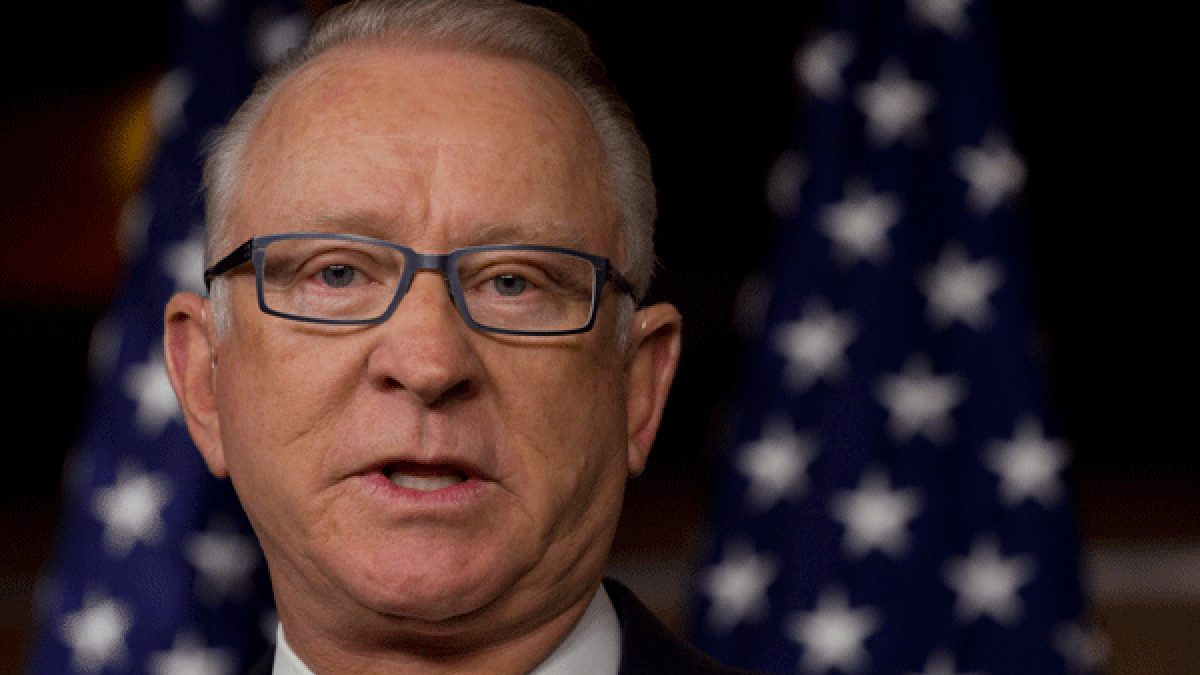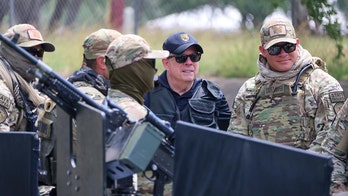
Chairman of the House Armed Services Committee Rep. Buck Mckeon, R.-Calif. (AP)
The chairman of the House Armed Services Committee is calling on President Obama to rethink a decision made by the Pentagon not to deploy a life-saving anti-mortar system in Afghanistan.
In a letter sent from his office to the White House on Tuesday, Chairman Buck McKeon, R-Calif., accuses the Pentagon of failing to honor a request in 2009 approved by then-CENTCOM commander, Gen. David Petraeus, for "counter rocket, artillery, and mortar" (C-RAM) intercept systems to be moved from Iraq to Afghanistan.
McKeon suggests the reason this request was denied is because it would have required more personnel to man the systems at a time when commanders were under pressure to draw down troop levels. He specifically referred to the president's "force cap" of 68,000 service members in Afghanistan, the number currently there.
"Unfortunately, according to data recently provided to the House Armed Services Committee, U.S. service members killed in action or wounded in action as a result of indirect fire from rockets and mortars in Afghanistan have, in fact, been on the rise," the letter reads.
It also points to an August rocket attack on a parked C-17 aircraft at Bagram airbase that was being used to fly the Chairman of the Joint Chiefs Gen. Martin Dempsey. Dempsey was not hurt, but two service members were injured.
The basis for the congressman's letter comes from a Joint Operational Needs Statement (JUONS) that McKeon's office says was originally validated by Petraeus, but then later revised. The original JUONS requested C-RAM capability for Afghanistan and "approximately 80-100 additional forces per site," the letter reads.
"Consequently, the CENTCOM commander decided to accept greater risk for forces in Afghanistan and submitted a revised JUONS, which eliminated the request for C-RAM intercept capability in Afghanistan," McKeon wrote.
The Pentagon has not officially responded to the letter, but one military official who has seen C-RAM's deployed to Iraq said, "the notion that a higher force cap would have led us to decide to deploy the system in Afghanistan is an over-simplification."
"The greatest threat our forces face continues to be IED's (improvised explosive devices)," this official added. "Commanders always have to make decisions to prioritize the types of forces they need ... and forces to man a defense system against indirect fire is simply not the most pressing need for our commanders."
The Pentagon also says it has concerns about using the system, which fires 75 rounds a second, near populated areas.
Other defense officials acknowledged the military doesn't keep count of the number of troops killed specifically in mortar or rocket attacks.




